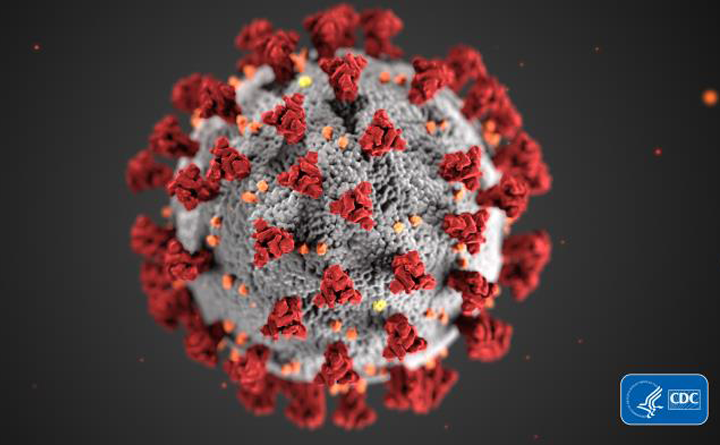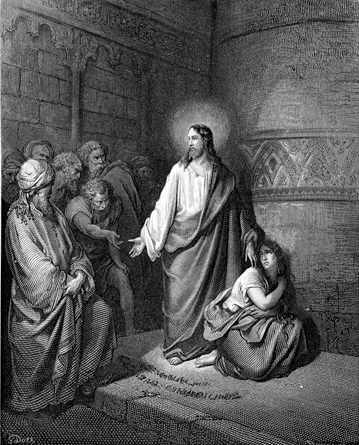The coronavirus has now become a worldwide concern.

My friend, a Japanese who works in the Middle East, said, “Japanese, Korean, and Chinese are all the same here. Whoever sneezes or coughs is seen as a Chinese and a potential coronavirus carrier.” By the way, Mongolian and Kyrgyz also look very much like Japanese.
To protect ourselves from the virus, we obviously must avoid crowds or contact with a carrier, but an excessive reaction such as “all Chinese are dangerous, all Asians are dangerous” is, although human nature, quite sad. In addition, even though it might have been the case that the Chinese government handled the situation poorly in the early stages, what is important here is to question what it would have been like had something similar occurred in our own country. Would it have been handled appropriately? As we live in a constantly globalizing society, what’s happening in China is not just China’s problem; it’s everyone’s problem.
Today’s topic is about the pot calling the kettle black.
The title of this issue is a play on Jesus’s
Let him who is without sin cast the first stone at her.

It is easy to criticize someone, but would you be able to withstand such a judgment, were you in their place? If you were in their place, what decision would you make and when? Only with such considerations does your critique become a constructive one. In the case of the coronavirus, one argument would be how to determine the balance between the epidemiological risk, from the public health management perspective, and the economic loss associated with handling the risk (of course there are other arguments, such as from national security and domestic politics viewpoints). In general, the answer should be to prioritize the safety and lives of the citizens no matter what, while minimizing the economic damage. For this purpose, the government must disclose information accurately, and properly guide its citizens with a clear policy in order to avoid mass panic.
We tend to become short-sighted and self-centered when criticizing an event or system. We also often become hard with others but lax with ourselves. However, it is like “spitting against heaven,” which in the end never really does any good. As the Analects teach us, “if you are too focused on the immediate things without thinking in the long term, something will pull the rug out from under you.”
Once there was a Japanese who alerted his country when everyone else was over the moon about being the rising star and boasting “Japan as No.1” (below is a translation of the original written in Japanese):

We are still serious about preventing its market from opening up further, while hoping for foreign countries to maintain free trade. We are not ok with foreign capital taking advantage of our market, but are excited about competent Japanese troops destroying the Detroit industry.
...
We say that the constant bankruptcies of textile companies in Hokuriku is a concerning social issue, but also that the closure of ironworks in Cleveland is a typical business failure due to the lack of long-term vision in the American management style.
As our appetite has considerably diversified, various agricultural products have become more important than our main staple, for which we greatly rely on the import from the US. Despite this, we argue that the reason American farmers suffer from the first major economic downturn since the Great Depression is because of the high-value dollar, and look for alternative import options from Argentina, China, and Australia. Do we even deserve to be recognized as Japanese, the people who are warm-hearted, humane, and compassionate, as we want?
...
Japan is now a wealthy country that relies on other countries for over 80% of their energy and food needs, but at the same time, a country that only cares about its farmers and fishermen; all the problems held by primary commodities exporters are someone else’s business. Shouldn’t we reflect ourselves and start changing this situation?
Kenichi Ohmae, “Sekai ga Mieru, Nihon ga Mieru: Beyond the Borders”
Irresponsible criticism and self-centeredness are two sides of the same coin. I feel that what we are seeing now at the global level is something akin to the immature attitudes we have seen before in Japan. In addition, this is also the case within our country. When foreign countries put import restrictions on Japan after the Fukushima accident, many complained that the problem was Fukushima, not all of Japan. If this the point they want to make, then the same should apply for the BSE contaminated beef issue in determining whether it is justifiable or not to introduce a total ban on beef imports. When each of us starts thinking about the coronavirus issue as our own problem, and considering what we would do were we the decision-maker of the country, we may then be able to offer more constructive opinions. Good criticism should be that which later generations can view as righteous. It may seem crazy at the moment, but eventually becomes common sense, as such are the perspectives that help societies and companies to transform. I hope that we make the best of the coronavirus experience to improve ourselves and move forward towards a better world.